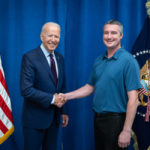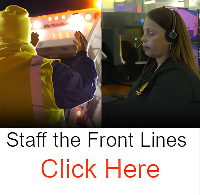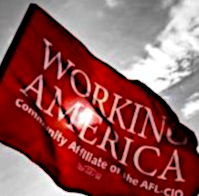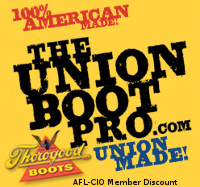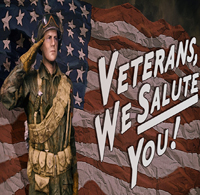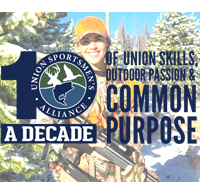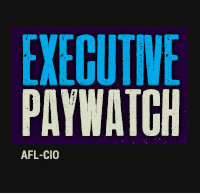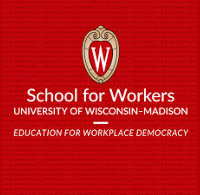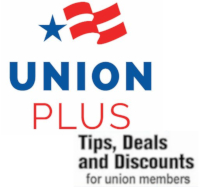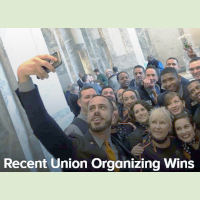The Western Wisconsin AFL-CIO (WWAFLCIO) is the local body of the AFL-CIO in Western Wisconsin with authority over six Wisconsin Counties; Crawford, Jackson, Juneau, La Crosse, Monroe, and Vernon.
The unionized workers of the La Crosse area first banded together in 1887 to charter as a AFL Central Labor Council. The roots of this Labor Body formed in 1902, as a charter was granted to the unionized workers, by President Samuel Gompers and it was named, The La Crosse Trades and Labor Council (AFL).
In 1959, the body was re-charted after the merger of the AFL and CIO in La Crosse and it became the La Crosse, Wisconsin AFL-CIO. In 2003 the body was re-charted in La Crosse renamed the Western Wisconsin AFL-CIO.
The WWAFLCIO does not have any full-time employees. The elected President is the executive whose duties are to run the day-to-day operations of the Council to the best of his or her ability. This includes implementing policy established by the delegate body, serving as spokesperson, as well as overseeing the treasurer’s management of finances and the WWAFLCIO’s legislative and political programs.
Our Delegate Body is made up of representatives from each of our affiliated Local Unions and meets the third Wednesday of every Month, barring any Holiday conflicts, at 7:00pm. Our current meeting location is the Machinists’ (IAMAW) District 66 office at 1307 Market Street in La Crosse, Wisconsin.
The Executive Board is the steering committee of the Council. It includes five elected members in addition to the four table officers (President, Vice-Present, Recording Secretary, and Financial Secretary/Treasurer). Typically, the board meets on the third Wednesday of the month at 6:30pm (a half-hour before the general membership meeting). The board’s duties include preparing policy recommendations to the delegate body, review and recommend action to the delegates as necessary on correspondence, act on Council business between meetings of the delegates, approve spending requests more than 50 (fifty) dollars, and engage in long- and short-term planning for the Council.
What does the WWAFLCIO do?
Public Events –
Organize, finance, and conduct four “public facing” events each year, the Labor Day Parade & Celebration, Workers Memorial Day Services and Solemn Ceremony (April 28th), NALC Food Drive (second Saturday in May), and the Take a Kid Fishing Day (first Saturday in June). The purpose of these four events is two-fold, to improve our community and to demonstrate to the public our shared commitment to making our community a better place to live and raise a family. Given the WWAFLCIO’s limited resources the council feels this is the best way to maintain and improve labor’s standing in the community.
Legislative Action-
The Labor Council involves members, to the extent the WWAFLCIO’s smaller size allows for, in legislative action to win pro-worker gains and fight anti-labor legislation. Political and legislative programs help to make politicians responsive to working families’ needs. In addition to local issues, the Council works with the national AFL-CIO on federal issues and the Wisconsin AFL-CIO Federation on state issues. Activities range from meetings with lawmakers on critical issues to mailings to union households regarding issues and endorsed candidates for public office.
Political Action/COPE-
The WWAFLCIO also advocates for working families’ interests through political action. Union members and their families mobilize to elect public officials who support working family issues. Through political organizing and the ability to “Get Out the Vote,” the Council can assist in holding elected officials accountable to workers.
The WWAFLCIO COPE (Committee on Political Education) is the political arm of the Council. Whenever the need arises for our COPE committee to meet the Council President solicits volunteers among the WWAFLCIO’s delegates to serve on the COPE committee at that time. The president may appoint additional delegates to service on the COPE committee. These selections are then approved by the body as a whole. Questionnaires are sent to registered candidates for public office and in some cases, interviews are also scheduled with candidates as well. After reviewing questionaries that are returned and going over interview notes the WWAFLCIO COPE committee votes on all endorsements of current candidates and ballot measures. Their recommendations are passed on to the general body for approval.
The WWAFLCIO has the final word on local endorsements (i.e., a mayor’s race within our six-county jurisdictional area). Additionally, the WWAFLCIO can make recommendations for endorsement in state assembly/senate races as well as federal congressional races. However, the Wisconsin Statewide COPE committee has final authority on endorsement in those races. Currently, the WWAFLCIO has one representative to the Wisconsin Statewide COPE Committee, William Brockmiller.
Once a candidate is COPE-endorsed, the council organizes political activities such as voter registration, “meet-the-candidates” events, phone banks, mailings, and precinct walk with assistance from the state and national AFL-CIO to inform fellow union members on the election. On Election Day, all work on get-out-the-vote drives to be sure workers get to the polls.
Andy Thompson, Western Wisconsin Service Area Organizer (SAO) from the Wisconsin AFL-CIO assists Labor Councils and local unions in Western Wisconsin in all political related endeavors. Per our bylaws, the SAO assigned to our area is a non-voting delegate of our council.
The WWAFLCIO’s Labor Press-
In 1917, the La Crosse Trades and Labor Council (AFL) began an annual publication. It continued as an annual until 1959, when it ceased publication.
In 1951, the CIO Industrial Council of La Crosse began a monthly newspaper, The Union Herald, Inc. It continued as a CIO publication until 1959, at which time it became the official publication of the La Crosse AFL-CIO Council.
In 2003 it became the official publication of the renamed, Western Wisconsin AFL-CIO. The Union Herald is published monthly.
Today, there are only three working-class newspapers in Wisconsin. They are the Union Herald in La Crosse, the Union Labor News in Madison, and the Southeastern Labor Times in Kenosha. As a result, the Union Herald remains the only voice of workers in parts of western Wisconsin and eastern Minnesota.
The Union Herald keeps separate books and conducts separate daily operations, but the two organizations (WWAFLCIO and the Union Herald) are intricately linked, both by their respective bylaws and in overall operations.
Copies of the United Herald are provided monthly by the WWAFLCIO to two representatives of each affiliate. We encourage all our affiliates to subscribe to the Union Herald for all its members.
Electronic Communications and Information Dissemination-
The WWAFLCIO is the communications hub for all things labor related within our six-county area. The Council maintains an Internet site, Facebook page, Twitter account, and a LinkedIn account to inform the public (and our members) about our activities and to
educate members/public on working family issues.
Current Internet addresses for these offerings are:
https://westernwisconsinaflcio.org/
https://www.facebook.com/westernwiaflcio/
https://twitter.com/wwaflcio
https://www.linkedin.com/company/western-wisconsin-afl-cio/
Given current resource limitations the WWAFLCIO’s webpage and Facebook page are the most frequently updated social media accounts at this time.
The Council, with the assistance of the SAO, maintains a database of labor and community activists. We communicate and mobilize our members and the community through E-Activist updates, press releases, website, and our social media account(s).
Strike Sanction and Bargaining Support-
Local affiliated unions may request strike sanction from the Labor Council. Sanction establishes formal support by the Council for a strike or other economic actions against an employer. Before granting sanctions, the Council checks with other unions that may be affected to satisfy any objections and to coordinate support. The Executive Committee approves requests for sanction, although emergency sanction may be granted in between meetings by the President.
Strategies for supporting local affiliated unions include picket line support, rallies, demonstrations, boycotts, food drives for strikers, and coordinating public officials and community support. Delegates from affiliated locals play a key role by recruiting fellow union members to join in solidarity actions.
Helping our local affiliates prior to or during difficult contract negotiations is another activity the Labor Council participates in. Occasionally the Council will be asked to participate in bargaining for a local affiliate to show broad labor support for a fair contract.



